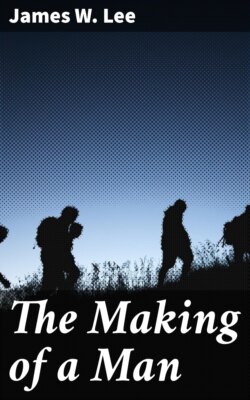Читать книгу The Making of a Man - James W. Lee - Страница 16
На сайте Литреса книга снята с продажи.
V.
ОглавлениеTable of Contents
If through trade only the material result is sought, the ends it were intended to subserve are missed. Its bulk may be large, the machinery through which it is carried on manifold and complicated, but with the emphasis on the money side of it, no manhood will be reached through it. The man side of a button machine is infinitely more important than the button side. The buttons which fall on one side may conform precisely to an approved and an exquisite pattern, but if the person who stands on the other side does not, through the process of making buttons, get a man out of himself, the whole thing is a disastrous failure. Human spirits are too valuable to be used up in making buttons. More respect is to be had to the human side of the loom than to the cloth side. The most beautiful pattern of silk ever woven loses its power to please the eye when it is remembered that the soul of a woman has been drawn into its threads and colors. The sacrifice of individual life is impressive and noble, if the object for which it is made is worthy. This kind of sacrifice is not the means of losing life, but of gaining it. But no material result to be used up in the passing season of fashion is worth such costly sacrifice.
Through forces we name capillarity, cohesion, and gravitation, matter accomplishes the purposes of thought. They are but manifestations of the power of mind working through them, to build up the mineral, vegetable, and animal kingdoms. They look beyond themselves. They work for higher ends. Thus all the industries we see in nature look to lifting and refining matter, and force high enough to serve the uses of human life. So the industries established on the plane of human life are to elevate man another step in the scale of being. Through sowing and reaping, through grinding and sawing, through spinning and weaving, through buying and selling, through building and furnishing, he is to be carried on in the march of progress.
The history of the physical universe culminates in man, finds its interpreter and its interpretation in him. Never was the thought of him absent from her movements through Pliocene, Miocene, Eocene, Cretaceous, Jurassic, Triassic, Carboniferous, Devonian, Silurian, or Cambrian ages. In all her awful cosmic emotion to reach order and form, it was the anticipation of man that moved her, for he it is at last that comes of it. So, through all the course of her tumultuous history, nature was pregnant with man. The stars which sang together in the early morning of the world, caught the inspiration which gave melody to their song from the thought of him.
Commerce, if it is to be permanent and healthy and progressive, must fall into line with the purpose nature was put upon its perilous course to subserve. Her countless forms of industry established by the law of supply and demand; her cars, rushing hither and thither all round the world; her great steamships on every sea; her great furnaces, whose chimneys lift themselves against the sky, must get their meaning and the reason for their existence from the fact that they are putting in their contribution to the making of a man. Her wheels are to fly, her spindles are to whirl, her paddles are to splash, and her hammers are to ring, making music amid it all, in anticipation of his increasing worth, his growing thought, his enlarging hope. Her countless wheels of industry will be throwing out axes, wagons, plow-stocks, hand-saws, and reapers as they fly; but these will be only so many means used to discipline the precious life committed for a while to her training. What chemical affinity did in lifting the original elements to the mineral kingdom, and what the animal did to lift the plant to the animal kingdom, so the trades and industries of commerce are to do in lifting human life from its individual, unrelated state to its social and fraternal state. The elements of commerce are to be the means to help human character out of human nature. Two kinds of raw material are to be refined. The iron in the mountain is to be turned into razor blades and caligraphs; the reeds in the swamps and the woods in the forests are to be turned into the notes of organ and piano; and in the process of refining these, man is to be disciplined in the use of himself, in the possession of himself, and in the command of himself.
